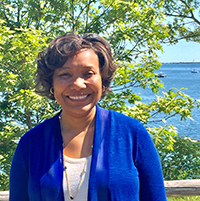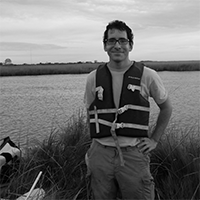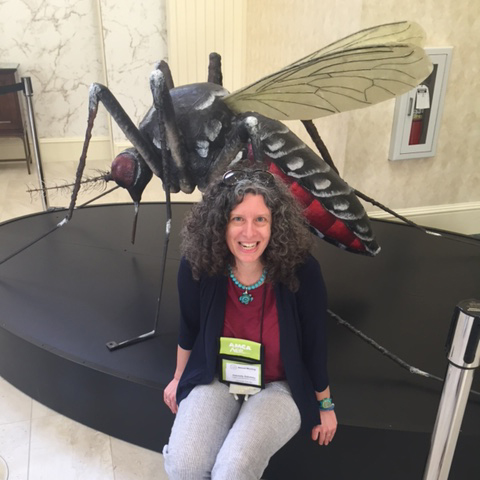- Watch: Full Session Recording (YouTube)
- Explore: Webinar Summary Resources
Parallel grid ditches were dug in approximately 90% of mid-Atlantic and New England salt marshes from the 1920s through the 1940s. Today, managers must navigate the effects of these past actions when making decisions about marsh hydrology and drainage that impact human health, ecosystem services, and marsh sustainability. Managers must also consider how stressors such as sea-level rise impact marshes. A team of scientists including staff from the Waquoit Bay Reserve in Massachusetts helped to address this challenge by working iteratively with coastal managers and restoration practitioners to develop a decision support tool for marsh hydrology management strategies that promote sustainability and continued delivery of valuable ecosystem services under future sea level rise scenarios.
In this webinar, the project team shares both the collaborative and technical aspects of their approach and the resultant Marsh Sustainability and Hydrology Decision Support Tool. The tool predicts potential outcomes of ditch and runnel maintenance in micro- and macro-tidal salt marshes under different scenarios of suspended sediment input and sea level rise.
Learn more about the speakers:
 | Amanda Spivak is an Associate Professor in the Department of Marine Sciences at University of Georgia. Her research aims to refine the role of estuaries and wetlands in the global carbon cycle and predict the likelihood of ecosystem recovery from disturbances. She uses biogeochemical and ecological approaches to quantify carbon fluxes, transformations, and fates. As project and technical lead, Amanda coordinated the many aspects of the project including fieldwork and model development. | |
 | Tonna-Marie Surgeon Rogers is the Manager of Waquoit Bay National Estuarine Research Reserve in Massachusetts. She has been working at the nexus of science and management for two decades and as part of her role at the Reserve leads engagement efforts to integrate stakeholders in research and planning processes related to coastal issues such as climate change, ecosystem services, coastal resilience, and water quality. As collaborative lead for this project, Tonna-Marie helped design and facilitate the team’s approach to engaging end users and being responsive to their needs in developing the decision support tool. | |
 | Giulio Mariotti is an Associate Professor in Louisiana State University’s Department of Oceanography and Coastal Sciences. His research aims to understand and quantify the long-term morphological evolution of coastlines and their responses to global environmental changes, with particular interest in coupling physical and biochemical processes (ecogeomorphology). As co-technical lead for this project, Giulio led development of a mathematical model that helps predict the evolution of marsh properties based on various parameters. | |
 | Gabrielle Sakolsky is the Superintendent at the Cape Cod Mosquito Control Project, a key end user of products developed as part of this project. She has conducted and directed the mosquito arbovirus surveillance program in Barnstable County for CCMCP for the past 25 years. Gabrielle also serves as chair of the American Mosquito Control Association’s Pesticide Environmental Stewardship Program (PESP) committee and is past president of the Northeastern Mosquito Control Association. | |
Learn more about the project: Evaluating the Impact of Hydrologic Alterations on Salt Marsh Sustainability in a Changing Climate